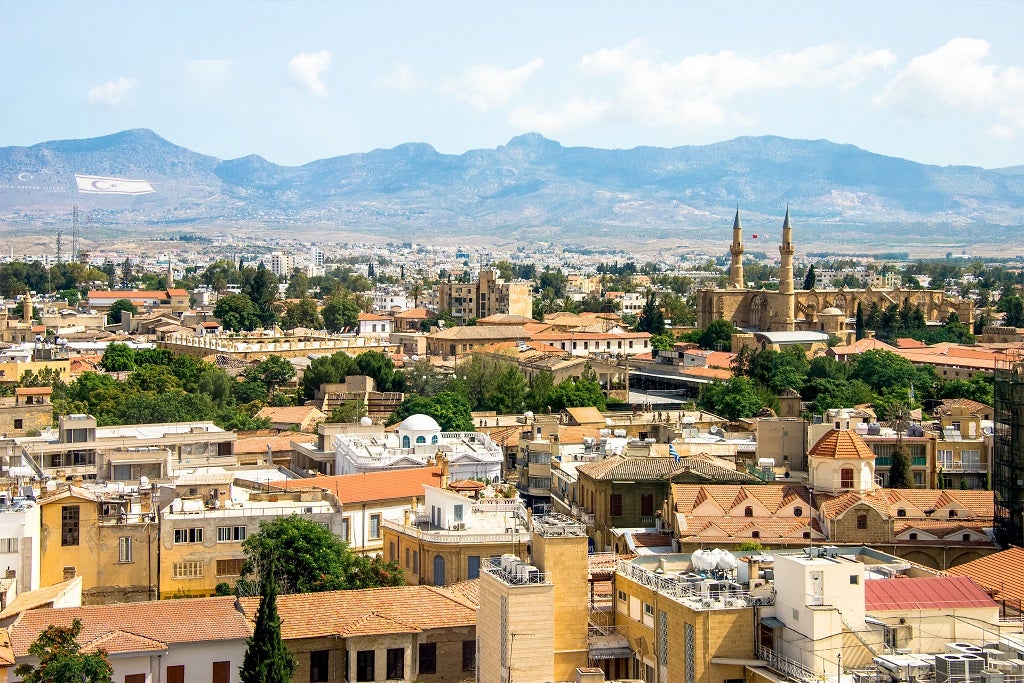Moving to Nicosia
Nicosia
-
Affordability 5 out of 5
-
Safety 4 out of 5
-
Healthcare 2 out of 5
-
Traffic Flow 1 out of 5
-
Property affordability 4 out of 5
-
Climate 5 out of 5
-
Environment quality 4 out of 5
Nicosia is very much a city of two halves, divided as it is by a Green Line which separates Turkish Cyprus from Greek Cyprus. Located at the centre of the island it is the capital of both the Republic of Cyprus (an EU member state) and the Turkish Republic of Northern Cyprus (internationally recognised as an occupied territory and recognised as a state only by Turkey). This state of affairs came about following the island’s independence from Britain through a Greek coup d’etat in 1974 and a reactive Turkish invasion. The issue of reunification dominates local politics to this day.

Life in Nicosia however is far from dominated by the politics of division. The overwhelming majority of the city’s urban sectors are part of the Republic and are home to the island’s international business concerns and financial institutions.
A recent economic boom saw Nicosia upgrade its infrastructure significantly – refurbishing the main square (Eleftheria), introducing a bike sharing scheme and a new bus service – before disaster struck in 2012 in the form of a banking crisis. Cyprus’s banks were heavily exposed to falling property prices and Greek debt. The price for a bailout was the contribution of Cypriot deposit holders – a bargain that saw mass protests and which has created much uncertainty over the economic future of the island.
Select the size of your move to get free quotes
Moving to Nicosia From the UK
Cyprus was once a part of the British Empire. It still retains many links to British business and culture and hosts a large British expat population. As such moving from the UK to Nicosia shouldn’t provide too great a culture shock. English is widely spoken in the Cypriot capital, unsurprising given that British nationals make up nearly 15% of the Cypriot population.
While many expats are attracted to the seaside towns of Paphos and Limassol, particularly retirees looking to spend their twilight years surrounded by sea and sand, Nicosia is not without its considerable attractions for British immigrants. Apart from the employment opportunities at global financial companies (e.g. PWC, Deloitte, KPMG and Ernst & Young) there’s also a rich culture and history to explore which takes in influences from the ancient Greeks through to the Ottoman and British eras.
Property prices have plunged in Cyprus following the banking crisis, opening up opportunities for cash buyers to grab a bargain. At the time of writing you could pick up a luxury mountainside villa with four bedrooms and a pool in Nicosia for €1.16m (£980,000) while a typical 3 bedroom apartment was listed at around €400,000 (£337,000). Property transfer taxes range between 3% (for properties up to €85,000) and 8% (for properties over €170,000).
Comparing Nicosia vs London
Nicosia’s summers are significantly warmer than London’s – average high temperatures reach 37 °C in July and August – and its winters are significantly milder – average lows in January and February don’t drop below 5 °C. As well as seeing more than twice the annual sunshine hours of London, on average, Nicosia also experiences over 40% less annual rainfall than the UK capital.
The cost of living in Nicosia is significantly lower than in London. There are far lower rental costs as well as cheaper property, restaurant prices and transportation. Mortgage rates are higher though, as are prices at the supermarket for common UK staples (like dairy), utility bills and internet access. The average salary in Nicosia is also lower (though most expats will be employed at rates exceeding those in their country of origin).
On average Nicosians report themselves as feeling safer than Londoners, experiencing better healthcare and spending less time commuting. They do however report higher pollution than residents of London.
Nicosia’s many architectural and historical sites of interest – from the Ventetian Kyrenia Gate to the caravanserai of Büyük Han – sit happily alongside new developments like the Cypriot Archeological Museum and the new four-stage THOC theatre.







